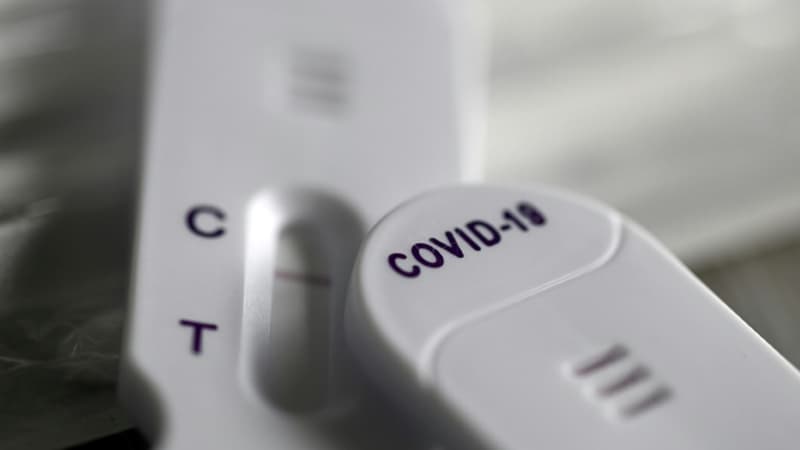48,331. This is the number of new cases of Covid-19 identified in 24 hours, according to figures from Saturday, November 26, from Public Health France (SPF). This is an increase of 2.6% compared to the previous Saturday.
In its epidemiological update published this Thursday, corresponding to the week of November 14 to 20, this public body under the Ministry of Health highlighted a “resumption of circulation” of Covid-19 in national territory, with incidence rates and growing positivity, as well as an “upward recovery in new hospitalizations and critical care admissions.”
Three years after the appearance of Covid-19, the virus has not stopped circulating and the Omicron variant is by far the majority among the cases detected in France. Contaminations could increase even more with the end-of-year celebrations, synonymous with many family gatherings and shared meals.
But for the specialist in infectious diseases Benjamín Davido, we must not be fatalists. “The novelty after three years of Covid is that today we have barrier measures, masks, we have all learned to disinfect our hands, distancing… We have vaccines and we also have treatments, with the limit of variants,” he explained on BFMTV on Sunday.
However, he underscores a “lack of pedagogy” at this level: “We haven’t explained to people that actually ‘living with it’ means it’s part of the long run.”
The “first message” to be transmitted, according to the Covid-19 reference at the Raymond-Poincarré hospital in Garches, is therefore to encourage people to recover with the new bivalent vaccines, adapted to the Omicron variant.
A recall campaign was opened in October
The booster campaign for the new vaccine against Covid-19 began on October 3. This reminder is recommended for people over 60 years of age, residents of nursing homes, people at risk of suffering from a serious form of the disease and those living with them, as well as professionals in the health and medical-social sectors.
This booster can be given three months after the last injection received by people 80 years of age or older, people living in nursing homes, and immunocompromised people. It can be received from six months after the last injection for other people. In case of recent Covid-19 infection, a period of three months should be allowed between contamination and the booster dose.
As of November 21, only 8.6% of people aged 60 to 79 eligible for a booster tailored to the Omicron variant had received one, according to Public Health France. This figure rose to 9.7% for those over 80 years of age.
“It is not trivial to have Covid, even when you are young. So probably the best thing you can do is anticipate and therefore protect yourself” thanks to vaccines, infectious disease specialist Benjamin Davido stressed on BFMTV on Sunday.
Source: BFM TV


